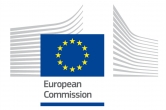What is the need?
European welfare states were designed to offer support against Twentieth Century social and economic risks. But European societies are changing in a number of interlinked areas including demography, globalisation, ecological sustainability, family structure, employment, poverty and social inclusion. The economic crisis of 2008 and its aftermath have emphasized that EU Member States will have to adopt distinctive social welfare reforms to improve their resilience and prepare for future economic and social risks. Social investment involves strengthening people’s current and future capacities and, in contrast to a straightforward redistributive approach to social policy, it uses welfare as a way of investing to improve prospects for future economic and social participation. It is the idea of having a lasting impact that gives such policies the characteristics of an investment by offering some returns over time.
However, to date, implementation of Social Investment approaches has been uneven across Member States and much remains to be learned, especially with regard to the regional and local realities of Social Investment. Many models of Social Investment are possible depending upon how policy, social and managerial roles are distributed between the public, private and third sectors and the specific legal and financial frameworks that are used.
The question we address is how to design robust social investment strategies which can deal with emerging socio-economic challenges and the aftershocks of the 2008 crisis. Our investigation of innovative approaches to implement social investment covers a number of dimensions:
· regional and local implementation of social investment policies;
· financial and regulatory innovations designed to promote social investment;
· the role of social innovation in the design and implementation of social investment policies;
· the potential for social investment strategies to encourage early intervention and life-course perspectives within welfare; and
· the development of more personalised approaches to the delivery of welfare.
You can find out more about our objectives and philosophy on the project website.
What are we doing?
The project includes many activities:
- A review of existing literature on social investment.
- A short review of policy in the ten Member States that the project is operating in.
- Cross-European comparative analysis of administrative data to give a quantitative, comparative overview of social investment strategies across the 28 member states of the European Union at different levels, complemented by an integrated report on the role of the social economy to deliver social outcomes in the ten project countries.
- 20 in-depth, multi-method case studies in ten EU countries of innovative, strategic approaches to delivering social investment policy at a regional or local level.
- Recruitment and training of 100 Community Reporters in ten case study areas.
- A foresight analysis where we consider options for innovative ways of implementing and financing social welfare systems in the future. The two elements of the foresight work are scenario planning and econometric modelling.
- An extensive programme of policy impact work being led by a network of Impact Partners with an interest in delivering social investment who are turning outputs from the research process and the foresight analysis into practical policy recommendations.
What will be the outcomes?
A number of research reports are available here .
Project links
- InnoSi website
- Community Reporters
Publications

Who are we working with?
We have been commissioned by European Commission (grant agreement 649189) and are leading a consortium of ten European Universities and ten Impact Partners (mostly NGOs).
Project Timescale
The project was completed in 2017.
PERU Projects
Nothing found.